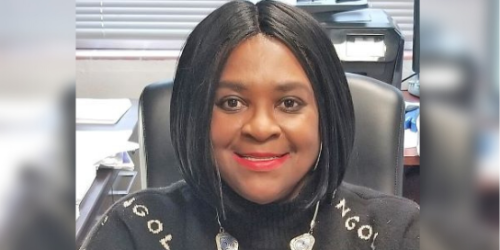Where is the humility? Where is the institutional courage to admit mistakes and move forward?
Individuals in leadership positions often derive their credibility from being the most knowledgeable person in the room, the unquestioned oracles of knowledge. This moment in education, however, requires leaders who will publicly position themselves as the best learners, not the best knowers. The sector has to reacquaint itself with the science of reading, unlearn some habits, suspend beliefs, and be vulnerable enough to embrace the inevitable learning curve. It will take grace and humility.
The NAACP considers reading proficiency to be a civil rights issue because The Information Age requires literacy to participate fully in a society that pushes nonreaders, systematically, to its margins. Given this, the education sector’s willingness to ignore the neuroscience and research consensus about literacy instruction is worth examining. What allows universities to have internal debates about science and methods that have long been settled? Why would dyslexia receive scant attention in an American credentialing program? Why would thousands of K-12 systems continue to use curricula that, even the authors now acknowledge, must be revised to address deficiencies in core elements of literacy instruction? And why would K-12 systems ignore mountains of evidence showing that foundational reading skills are undertaught?
The same universities who claim to be leading research institutions are eerily silent about their failure to apply the research in preparing teaching candidates. Likewise, the K-12 institutions with mission statements citing equity have systematically created a resource gap where those without money to overcome inadequate instruction are consigned to the margins of society while their better-resourced peers seek tutors or more appropriate school placements. Rather than address these issues, we have focused on untangling America’s racial quagmire – as if these things are mutually exclusive. We seem oblivious to the impact race and class have on our tolerance for student failure and our willingness to promote external control narratives that undermine collective teacher efficacy and obfuscate the central issues: we have not provided direct, systematic, explicit instruction to teach reading; neither curricula nor materials have been evidence-based; professional development dollars have not been used well; assessment has been misunderstood and abused; interventions haven’t been timely; and the dearth of humility from leaders and institutions have limited the possibility of effective change management.
Remedying this situation is absolutely within our control.
Universities must ensure that teachers have the knowledge and skills to ensure the greatest number of children learn to read, and K-12 institutions must prioritize student achievement and teacher usability when selecting curriculum and materials. Instead, the education sector has been a playground of personal values and communal assumptions that promote politically and culturally popular methods of reading instruction rather than examining the research and applying the science of reading. The public deserves better, and there must be a reckoning.
Popular publishers now admit they were wrong about some of their core teachings. But the damage has been done, millions of dollars have been made, genius has been snuffed out, and prisons have been filled. And nobody is humble enough to say, “We blew it.” Instead, the sector hems and haws, elevates red-herring arguments, and refuses to reflect on how we got here.
Teachers have been asked to figuratively make bricks without straw. They had little to no opportunity to close an achievement gap using preparation, curricula, and materials that were misaligned with the science of reading, but they were often blamed for the results.
This blog entry was supposed to focus on myriad issues related to improving literacy outcomes and how to align universities, districts, communities, parents, and teachers on core actions related to establishing an effective literacy acquisition continuum. But what’s needed, first, is the education sector acknowledging its mistakes and committing itself to following the research and science. It is past time for this. We have to tell the parents that, actually, your children aren’t lost causes; we just weren’t applying the research. Having leaders who provide vision, communication, humility, and institutional courage will allow us to shift towards the science of reading without blaming others and, instead, embrace this time of reckoning for all the promise and potential it holds.
Kareem Weaver is an NCTQ Senior Visiting Fellow. Kareem is a member of the Oakland NAACP Education Committee, a leader of Full and Complete Reading is a Universal Mandate (FULCRUM), and was an award-winning teacher and administrator in Oakland, California, and Columbia, South Carolina. Kareem has an undergraduate degree from Morehouse College and a master’s in Clinical-Community Psychology from the University of South Carolina.
More like this

Messaging from reading advocates comes off as lopsided. The science isn’t
It is clear that neither word recognition nor comprehension at the expense of each other produces successful readers.

Getting districts and teacher prep on the same page on reading pays off
There’s clear evidence that teachers are more effective reading instructors with special education students when both their preservice preparation and their school district emphasize evidence-based reading practices.

Back to the basics to boost reading results: Q&A with TSU’s Dr. Jerri Haynes
Tennessee State University’s Dr. Jerri Haynes on how their college of education worked to ensure its teacher candidates were better prepared to teach elementary students how to read.


